Your trusted guide to clinical trials
Find clinical trials relevant to you, near you. Powered by AI.

Browse Trials by Condition
- Neoplasms 17,977
- Lymphocytic Leukemia, Acute 14,975
- Muscular Dystrophy 14,800
- Metastatic Cancer 10,726
- Neoplasm Metastasis 10,613
- Menstruation 8,591
- Surgery 8,546
- Carcinoma 6,521
- Uterine Fibroids 6,373
- Neurologic Disorders 6,344
- Pain 5,739
- Chemotherapy 5,186
- Wounds 4,839
- Lung Disease 4,596
- Allergy 4,046
- Vascular Diseases 3,838
- Vision Loss 3,703
- Heart Disease 3,146
- Cardiac Disease 3,131
- Depression 2,967
- Inflammation 2,825
TrialX — your clinical trial finder
A new, easy way to participate in clinical studies.



You are in great company.
Institutes that trust us.







New & updated studies
Browse all studiesWhole-Food Plant-Based Diet to Control Weight and MetaboInflammation in Overweight/Obese Men With Prostate Cancer
The study is comparing the effect on weight of providing home-delivered whole-food, plant-based meals versus standard, general nutritional counseling to men with prostate cancer on androgen-deprivation therapy (ADT).
Donor-Derived Anti-CD33 CAR T Cell Therapy (VCAR33) in Patients With Relapsed or Refractory AML After Allogeneic Hematopoietic Cell Transplant
This is a Phase 1/2, multicenter, open-label, first-in-human (FIH) study of donor-derived anti-CD33 Chimeric Antigen Receptor (CAR) T cell therapy (VCAR33) in patients with relapsed or refractory Acute Myeloid Leukemia (AML) after human leukocyte antigen (HLA)-matched allogeneic hematopoietic cell transplant (alloHCT).
AMAZE-lung: Amivantamab, Lazertinib and Bevacizumab in Patients With EGFR-mutant Advanced Non-small Cell Lung Cancer With Progression on Previous Third-generation EGFR-TKI
AMAZE-lung is a multicenter single-arm phase II trial. The protocol treatment consists of amivantamab, lazertinib and bevacizumab (Zirabev®), given in a three-weekly regimen. The primary objective of the trial is to assess the efficacy of amivantamab and bevacizumab added to continued treatment with the third-generation EGFR-TKI lazertinib, in patients with …
rAAV-Olig001-ASPA Gene Therapy for Treatment of Children With Typical Canavan Disease
Canavan Disease is a congenital white matter disorder caused by mutations to the gene encoding for aspartoacylase (ASPA). Expression of ASPA is restricted to oligodendrocytes, the sole white matter producing lineage in the brain. ASPA supports myelination in the capacity of its sole known function, namely, the catabolism of N-acetylaspartate …
Immediate Release Versus Extended Release Torsemide After Salty Meal
The goal of this randomized double-blind crossover study is to assess whether a morning dose of the extended release torsemide has a better efficacy than the ordinary immediate release torsemide to induce renal sodium excretion after a salty lunch in patients with stable heart failure. The main questions it aims …
Evaluation of Treatment With Coenzyme Q10 and L-Carnitine on Semen Parameters in Infertile Men With Idiopathic Oligoasthenoteratospermia
Evaluation of treatment with Coenzyme Q10 and L-Carnitine on Semen Parameters in Infertile men with Idiopathic Oligoasthenoteratospermia
Your clinical trial journey
Find a study
Search or browse for a clinical trial near you.
Check Eligibility
Learn more about the trial and check to see if you are eligible to take part in it.
Participate
If you prequalify, connect with the study team and let your trial journey begin!
Accelerating clinical research powered by AI
Building patient connection for a better future

Join us in our mission to help accelerate clinical research.
We are on a mission to make 1 billion actions made towards clinical research. ‘Actions’ are anything from searching for trials, sharing a trial, getting in touch with a study team — or something as simple as becoming a volunteer.





